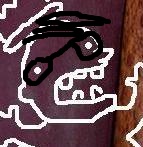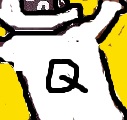The Forward Prize has gone to John Burnside, nominated three times before without winning. Too bad. I don’t think it’s a particularly strong field they’ve chosen, particularly when Alan Gillis has been overlooked for both of the major awards, which is nothing short of criminal. Nurske I haven’t been able to get my hands on, O’Brien and Hill were blow-outs for different reasons, and Longley’s book, while not his best, is still a damned sight better than Black Cat Bone. Longley’s book has warmth, humour, still one of the finest ears in the business, and goddammit he says things about things. I miss that.
The book has been praised for, amongst other things, being ‘liminal’, exploring the state between waking and sleeping, which is appropriate because that’s precisely where reading the forsaken thing put me. ICE BURN. There’s only so often you can tell me about the snow, the drifting snow, the miles-deep snow… The physical presences are usually mere shadows, there’s a veritable menagerie of dead animals that pile up through the book, and the only humans that pop in are so ill-drawn and bloodless as to question the good of their presence.
The book goes to disappointing lengths to keep the reader at bay from any kind of insight into what in god’s name he’s talking about. There are several epigrams, most in foreign languages without an English crib; in a bygone age these would have been chaff-sorting shibboleths, keys cut only for the bescholared few to gain entry into the back rooms of enlightenment, but glory be to google translate which gave me the sullen truth that if there was some glimmer of profundity in the originals it’s passed safely over the head of the poem that follows.
They feel like so much window-dressing and add to the pervasive air of ‘up yours for trying to read me, you vulgate’ that surrounds the book like a huff. There are a number of poems that use Bible verses as epigrams – one includes an English translation, one a latin translation, and two only the chapter and verse reference. Why not include the passages in the notes in the back of the book if it so sullies the appearance of the page? Can’t he see we just want to understand??
Of course these are peripheral frustrations with an airy and unfocused book from an author, who, while clearly well-read (he gives us no chance to believe anything to the contrary), does not appear to have absorbed the lessons of Kafka, Stevens and Melville, particularly not the comic timing of any of those three. Say what you will about Stevens’ dryness or coldness, at least he had a rakish angle to his chapeau. Burnside… I don’t even know where he fits into that metaphor. I’d wager his chapeau is barely at an angle at all.
Okay, look, Burnside displays some competence with narrative and atmosphere in his long-form poems. “The Fair Chase” is a short story dressed as a poem, but as a piece of writing it is an effective one, even if any argument it makes is inferred. He can certainly string an unusual sentence together, and does not shy away from the darker elements of his dreamlife. Whatever you might say about the frustrating lack of emotion, death is constantly a presence.
Some examples then to illustrate my consternation, then. Here’s a cracker, from the poem “A Game of Marbles”: ‘The things I love / I bury in the woods / to keep them safe’. That’s nice dear. Try to picture what Burnside is describing here, in “Amnesia”: ‘where a man / is almost there / raising his hand / to wave, / or turning back, / precise / and random / like an early film / and pausing / in the snow, / as if to listen –’ That’s the essence of the shit Taylor Mali is calling out in this video. From “Faith”: ‘not him, not her, but something of the two combined.’ Who him and her are is completely down to the reader’s imagination because god knows the poet’s not telling. I choose Peter Falk and Fiona Bruce. Now there’s an image.
The padding that fills out the book is all the usual cream-filled humbug that people make fun of when they say they don’t like poetry, and they need only point to the consistent lack of emotional engagement with the world conjured up to be fully justified. From “Nativity”, a poem in which the speaker’s mother dies in childbirth: ‘the warmth of my mother / fading, as the lights go out // in house after house, from here / to the edge of the world, // her slack mouth, then the darkness in her eyes / the first thing I see / when the midwife returns with a candle.’ There’s a coldness to the whole poem, ending in close-up, it doesn’t suggest a steely sadness, just an apathy that reminds me of our friend RR. It’s unfair to expect a reader to invest emotion into a work that brings none of its own.
As for the albatross of scholarship that so clearly encumbers Burnside’s writing, it saps the poems’ personality and feels like the product of almost any undergraduate who had read Frost and gotten sick of all the friendliness. Maybe that’s unfair. There are some words in here that undergraduates might not know, like ‘vellum’. There’s also a grim-faced shoulder-to-the-grindstone dedication that certainly I didn’t bother my arse with in my bachelor days.
Speaking of Peter Falk, just one more thing. Burnside, while not quite in the same league of objectifying maverick Robin Robertson, still has a fair dig at portraying women as interchangeable and merely the sum of their physical attributes. From a little passage of poems whose titles seem taken from or imitations of blues songs: “Death Room Blues”, “Hurts Me Too”, “Oh No Not My Baby” etc. ‘my mouth / a sweet spot in the dark // she thinks is safe / until I drink her in’. Sound familiar? ‘that tomboy sweetness in her face / of one struck dumb with awe.’ ‘at the end, / she scattered from my hands, no longer hurt / so beautifully, she seemed more song than woman.’ These are characters with their humanity dampened and this is a narrator with unchallenged power over its subjects. His women are silent, controlled, and lifeless. These several poems are a particular struggle.
Judging by the chatter Burnside has picked up the Forward Prize largely off the back of his failed nominations in the past, very likely for better efforts. This automatically puts him deep in the running for the TS Eliot, and undeservingly so. Leontia Flynn still stands as the one to beat, but once I get my mitts on the rest I’ll have a much better idea of how upset I’ll be when she doesn’t win.



Have only read it through properly the once, but I have ro say I agree with you about the lack of emotional engagement and annoying overall waftiness. His earlier books are generally genuinely good, but in this one I’m struggling to find even one poem to take away and contemplate further. Actually I thought “Nativity” just about the most interesting — the brutality of that last stanza suggested something darker on the way, although you’d been lulled to sleep somewhat beforehand. But then you turn the page, and it’s back to waftiness again …